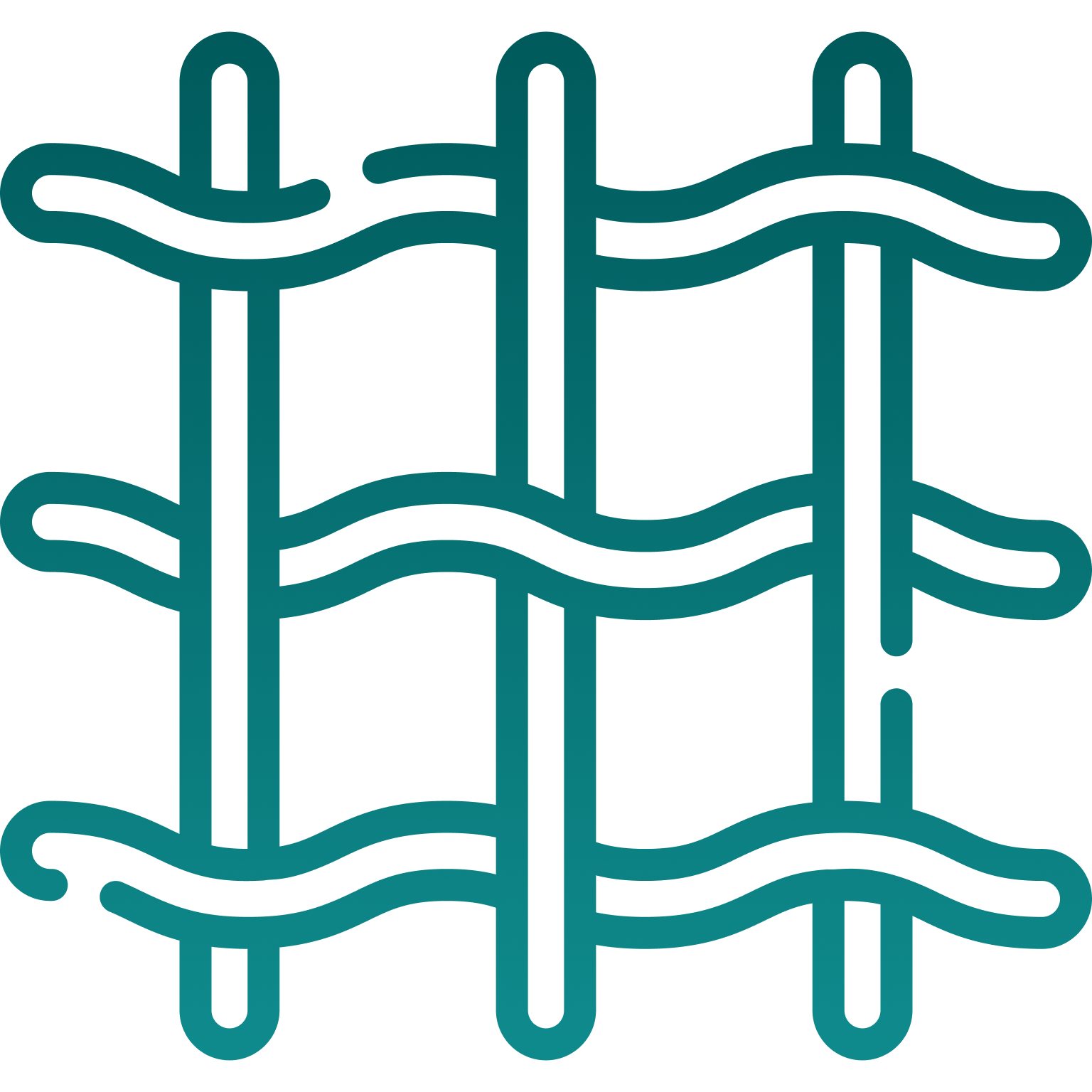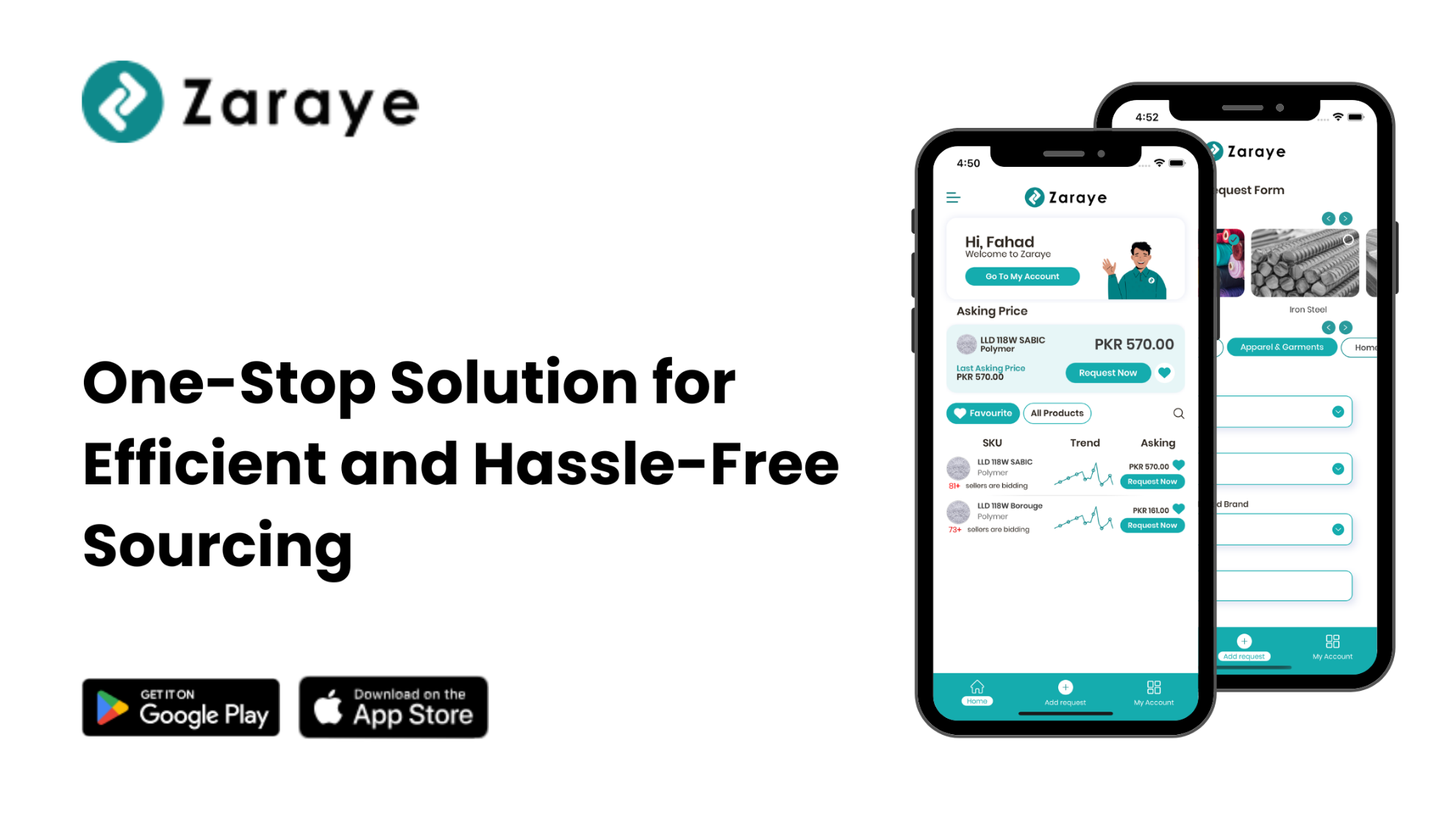Within Pakistan's manufacturing landscape nestles persistent challenges that have long obstructed the growth of small and medium-sized businesses. These industries, pivotal to the nation's economy, wrestle with issues ranging from inadequate access to financing to a lack of standardization within supply chains. In the continuous effort to transform these challenges into opportunities, Zaraye, a pioneering B2B sourcing platform, has emerged as a beacon of hope for manufacturers seeking a seamless and efficient way to source materials and expand their businesses.
Ahsan Ali Khan, the Co-Founder of Zaraye states, “Zaraye's vision is to create a more equitable world. We identified substantial issues in Pakistan's industrial sector and in many emerging economies, where manufacturing inefficiencies lead to substantial loss of value.”
Small and medium-sized manufacturers in Pakistan encounter an uphill battle regarding securing financing and scaling their operations. Financial constraints hinder investments in supply chains and expansion efforts, curtailing their growth potential. Poor communication among stakeholders compounds these challenges, resulting in misunderstandings and delays. Language barriers and cultural differences exacerbate this issue. Furthermore, the absence of standardization within operations breeds confusion and shipment delays, posing significant obstacles for businesses operating under tight timelines or stringent quality standards.
In the face of these formidable challenges, Zaraye has emerged as a dynamic solution that directly addresses the pain points of the manufacturing sector. The Zaraye team is dedicated to assisting mass manufacturers in overcoming the hurdles posed by limited resources and constrained access to optimal sourcing rates. By empowering these manufacturers, Zaraye is revolutionizing the factory industry. Through its B2B platform, Zaraye bridges the gap between manufacturers and suppliers across Pakistan. The platform's scope transcends a single industry; it has rapidly expanded its reach to encompass sectors such as textile, construction, iron steel, finished textile goods, and polymers.
Zaraye's inception marked the initiation of a transformative journey spanning two years, aimed at making a profound impact on Pakistan's manufacturing landscape. Initially concentrating on the textile and construction industries, Zaraye rapidly gained credibility as a dependable sourcing partner. Over time, the platform has not only facilitated the procurement of raw materials but has also diversified its offerings to encompass finished textile goods, iron steel, construction materials, and polymers. This expansion is a testament to Zaraye's dedication to becoming the ultimate catalyst for the success of small and medium-sized businesses.
Since its establishment in 2021, Zaraye has experienced a growth trajectory best described as remarkable. Zaraye has solidified its presence in major industrial cities including Karachi, Faisalabad, and Gujranwala. Their network of 300 partners and suppliers across 20 cities empowers them to effectively address national and global sourcing needs, making substantial contributions to the growth of the manufacturing industry. By furnishing them with the necessary tools for prosperity, Zaraye's mission is intricately woven into Pakistan's broader economic advancement.
The CEO, Ahsan Ali Khan shares the mission which strongly resonates with the company's actions, "Our mission is to empower small and medium-sized manufacturers to operate with the same sourcing advantages as large manufacturers, enabling them to compete and flourish in business and value creation. By tackling the disparities in markets that impede these manufacturers from accessing favourable rates and credit, Zaraye is actively resolving these challenges for numerous customers across various categories nationwide."
Through its unwavering commitment, Zaraye stands as a driving force, propelling Pakistan's manufacturing sector toward unprecedented growth and prosperity. The platform's dedication to bridging gaps, fostering collaboration, and enhancing access to resources positions it as a pivotal player in reshaping the trajectory of the nation's industrial landscape.















.png)




